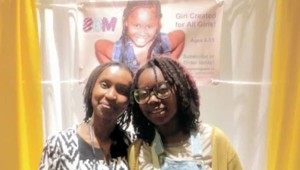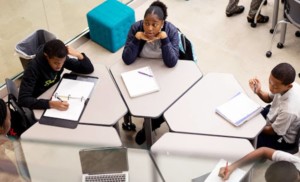The Internet is What We Make It
OK, you know I’m a fan, but today David Brooks riffs on Nicholas Carr’s ‘the Internet is making us dumb’ argument—which I’ve called a dumb argument. Brooks compares a study where kids read books over the summer to an old study that looked at the effects of kids wasting time online—obviously reading wins.
First, let’s acknowledge that kids are growing up different. Marc Prensky, author of Digital Game-Based Learning, explains, “Students certainly don’t have short attention spans for their games, movies, music, or Internet surfing. More and more, they just don’t tolerate the old ways—and they are enraged we are not doing better by them.” Palfrey and Gasser summarize how different this generation is:
There is one thing you know for sure: These kids are different. They study, work, write, and interact with each other in ways that are very different from the ways that you did growing up. They read blogs rather than newspapers. They often meet each other online before they meet in person. They probably don’t even know what a library card looks like, much less have one; and if they do, they’ve probably never used it. They get their music online—often for free, illegally—rather than buying it in record stores. They’re more likely to send an instant message (IM) than to pick up the telephone to arrange a date later in the afternoon. They adopt and pal around with virtual Neopets online instead of pound puppies. And they’re connected to one another by a common culture. Major aspects of their lives—social interactions, friendships, civic activities—are mediated by digital technologies. And they’ve never known any other way of life.
Second, there’s better and more recent research. A MacArthur funded study reported that “Results from the most extensive U.S. study on teens and their use of digital media show that America’s youth are developing important social and technical skills online – often in ways adults do not understand or value.” Key findings included:
- Youth understand the social value of online activity and are generally highly motivated to participate.
- Young people are learning basic social and technical skills that they need to fully participate in contemporary society.
- The social worlds that youth are negotiating have new kinds of dynamics, as online socializing is permanent, public, involves managing elaborate networks of friends and acquaintances, and is always on.
- The Internet provides new kinds of public spaces for youth to interact and receive feedback from one another.
- Young people respect each other’s authority online and are more motivated to learn from each other than from adults.
- Most youth are not taking full advantage of the learning opportunities of the Internet.
Third, the books vs. Internet is a rearview mirror argument that has little relevance going forward. Books are online now; learning is going online. Online and blended learning is the one shot we have to change the curve—to create much more productive learning experiences and experiences. The real question is how to create powerful learning experiences that build persistence, knowledge, and skills and advance a set of student learning outcomes in the process. What I appreciate about John Danner and Rocketship is that he’s is working this question; he’s using a 1/4 blend to extend the day, pay teachers more, and fund growth and he’s thinking about what 50% blended looks like. If we don’t work this question, our school–even the best–will become increasingly irrelevant, ineffective and inefficient.
Brooks gets the conclusion right, “It could be that the real debate will not be books versus the Internet but how to build an Internet counterculture that will better attract people to serious learning.” We have the knowledge and tools to create much more productive schools; it’s now a question of leadership, investment, and edurepreneurship.






0 Comments
Leave a Comment
Your email address will not be published. All fields are required.